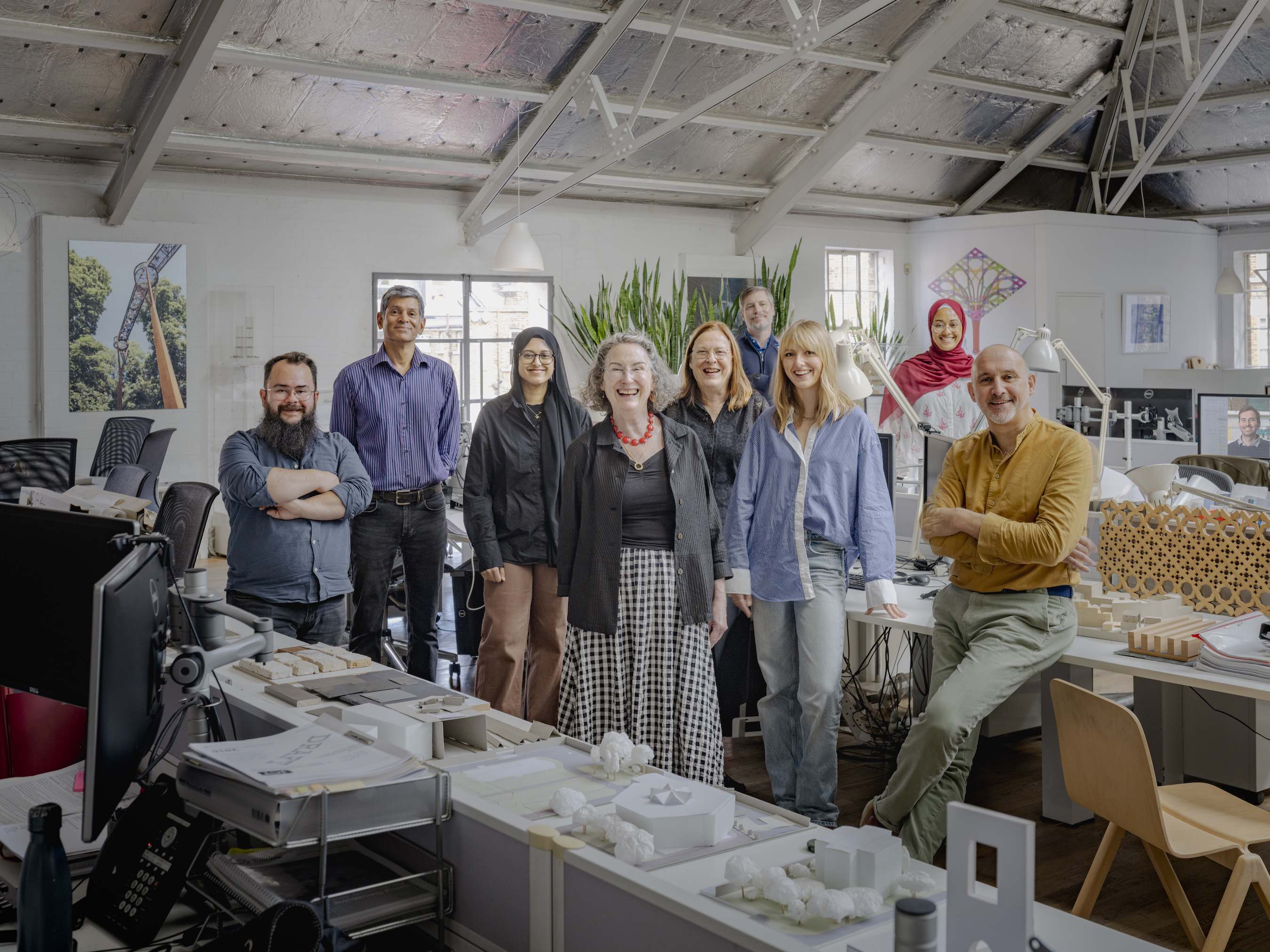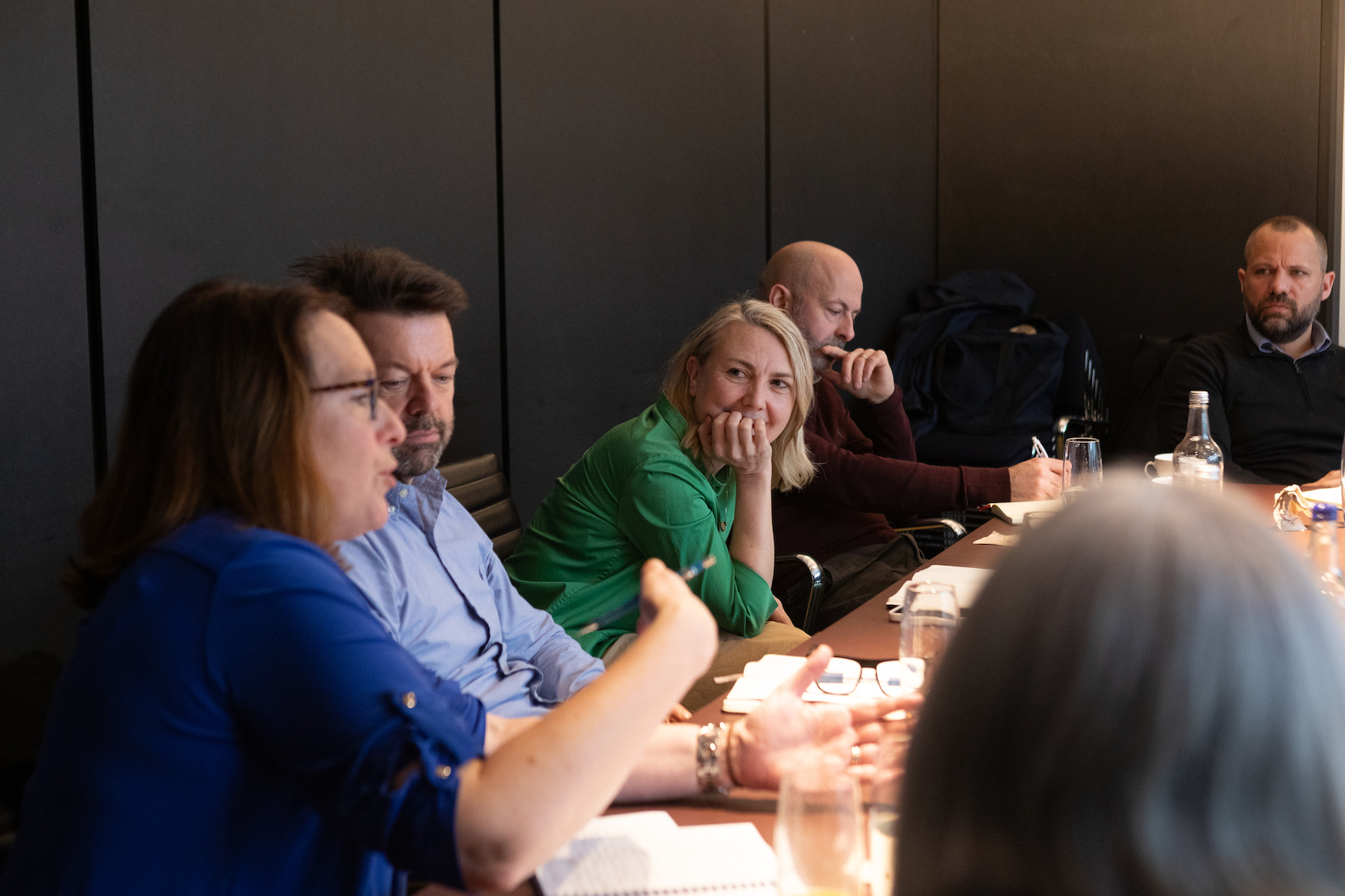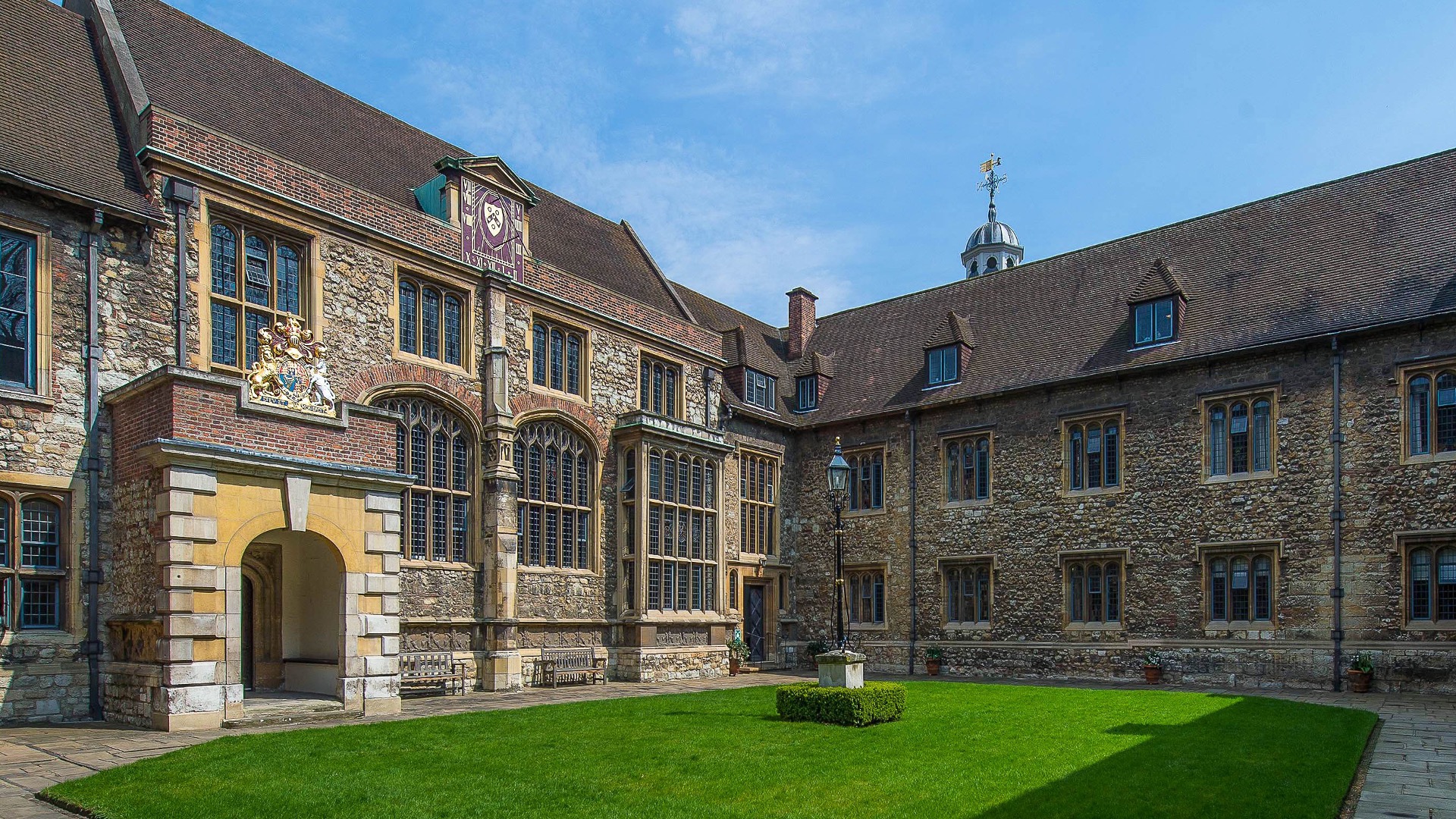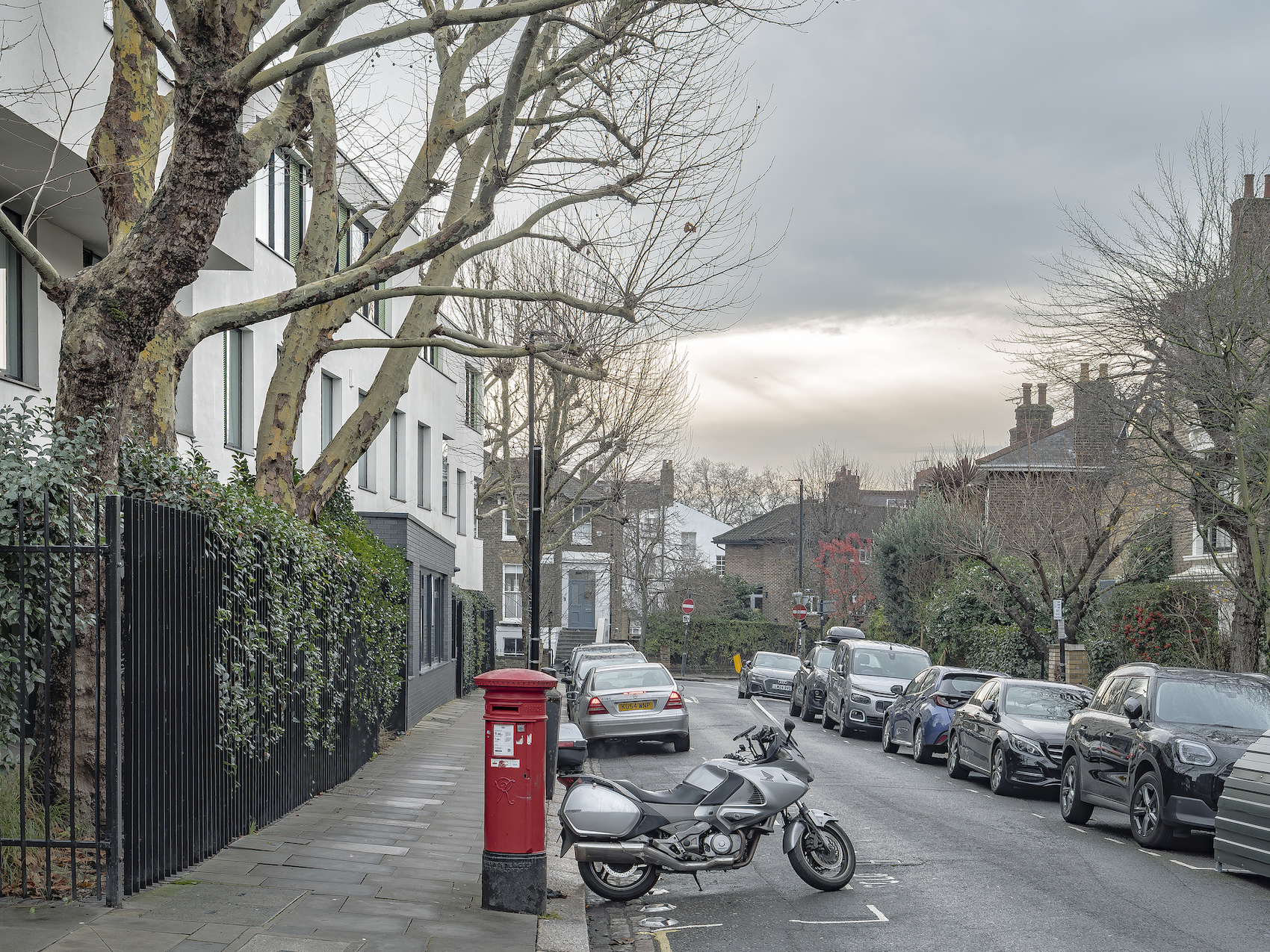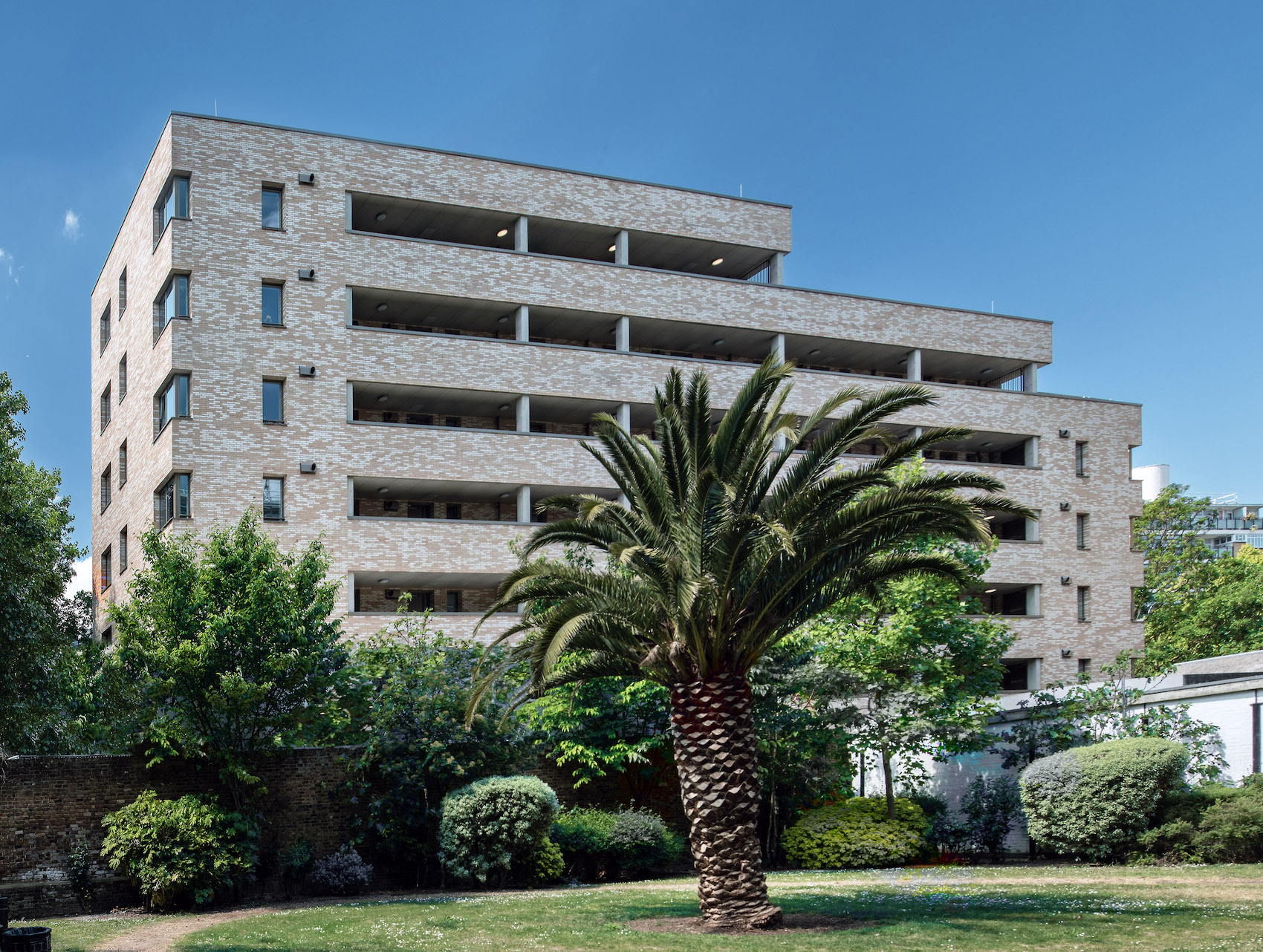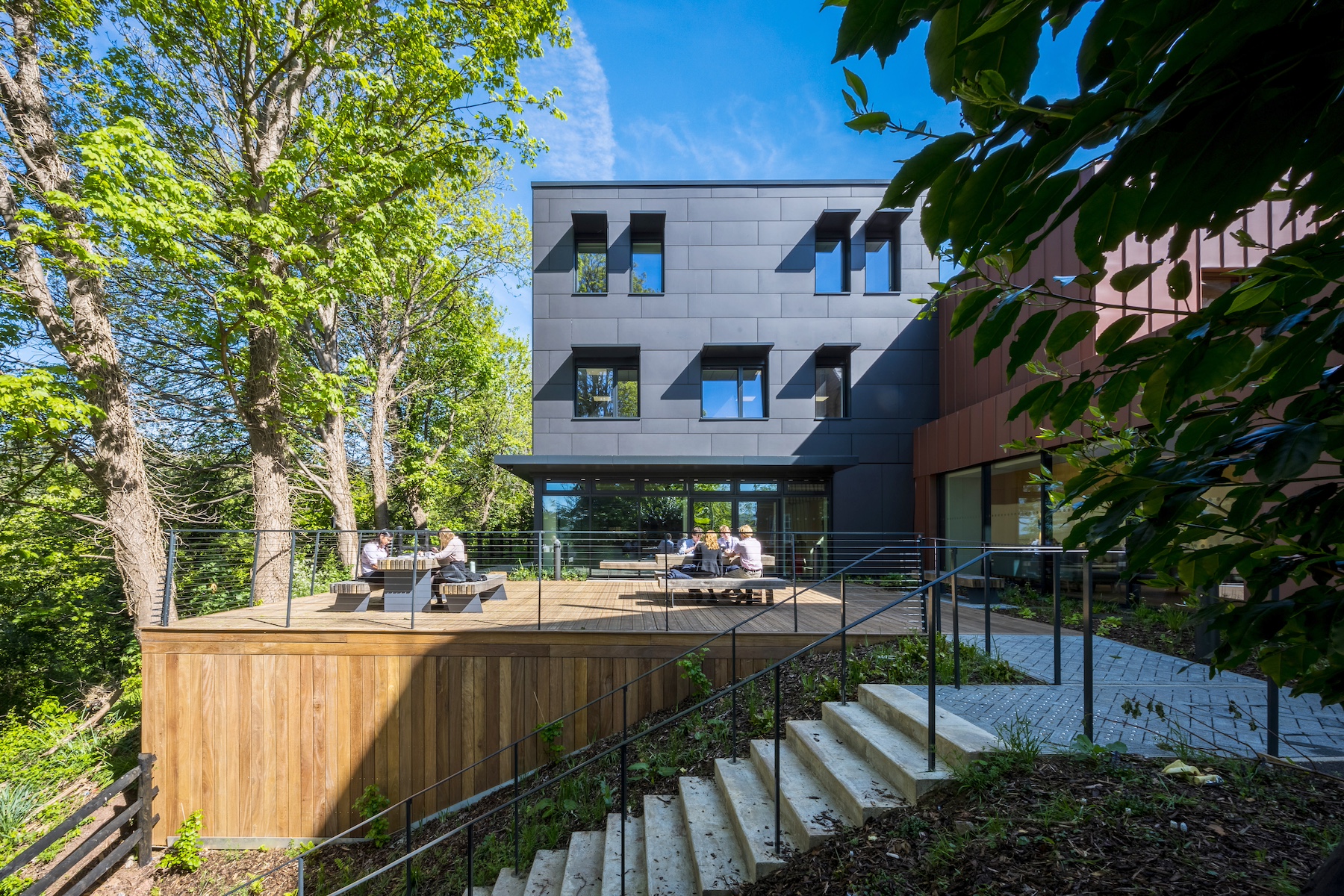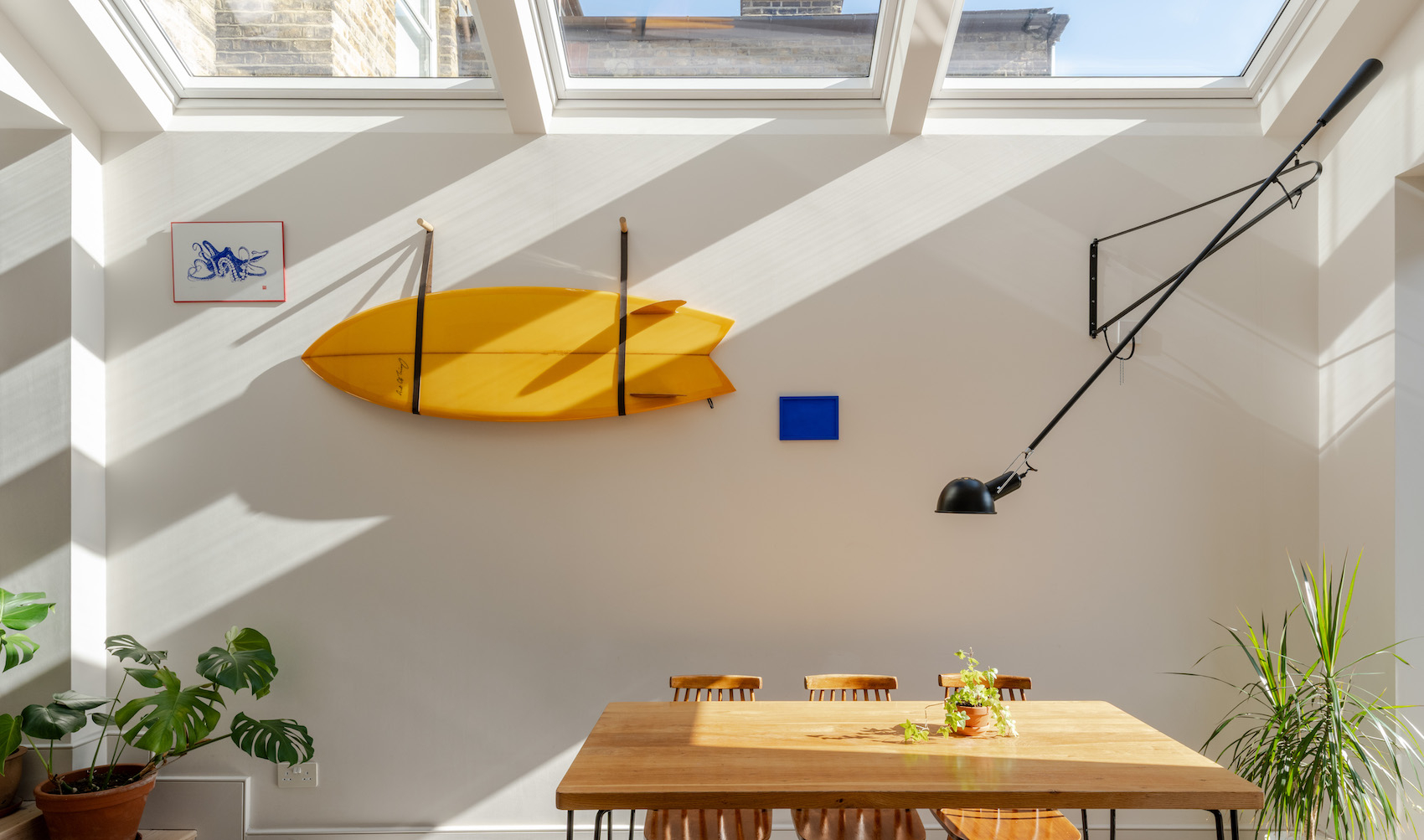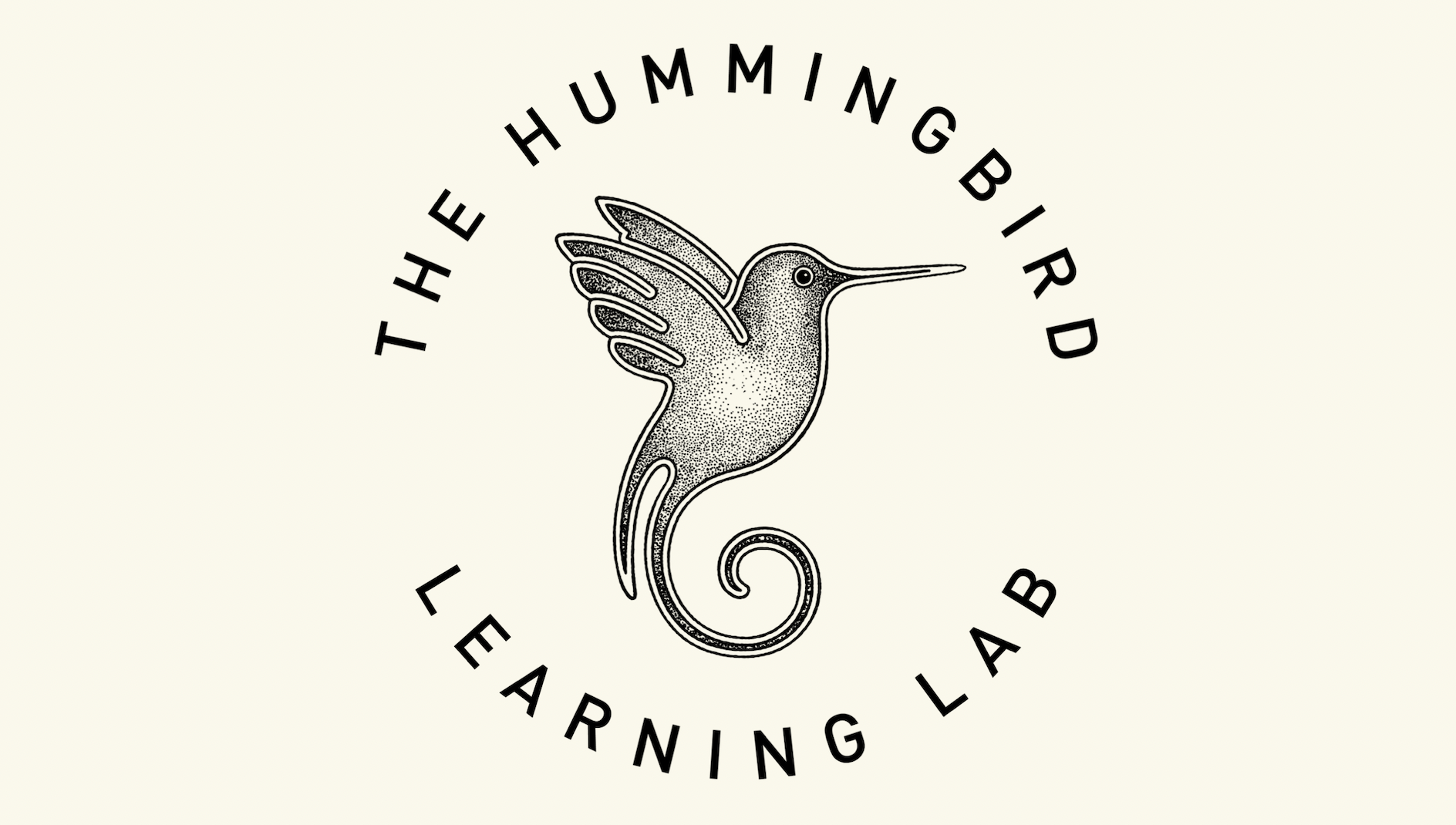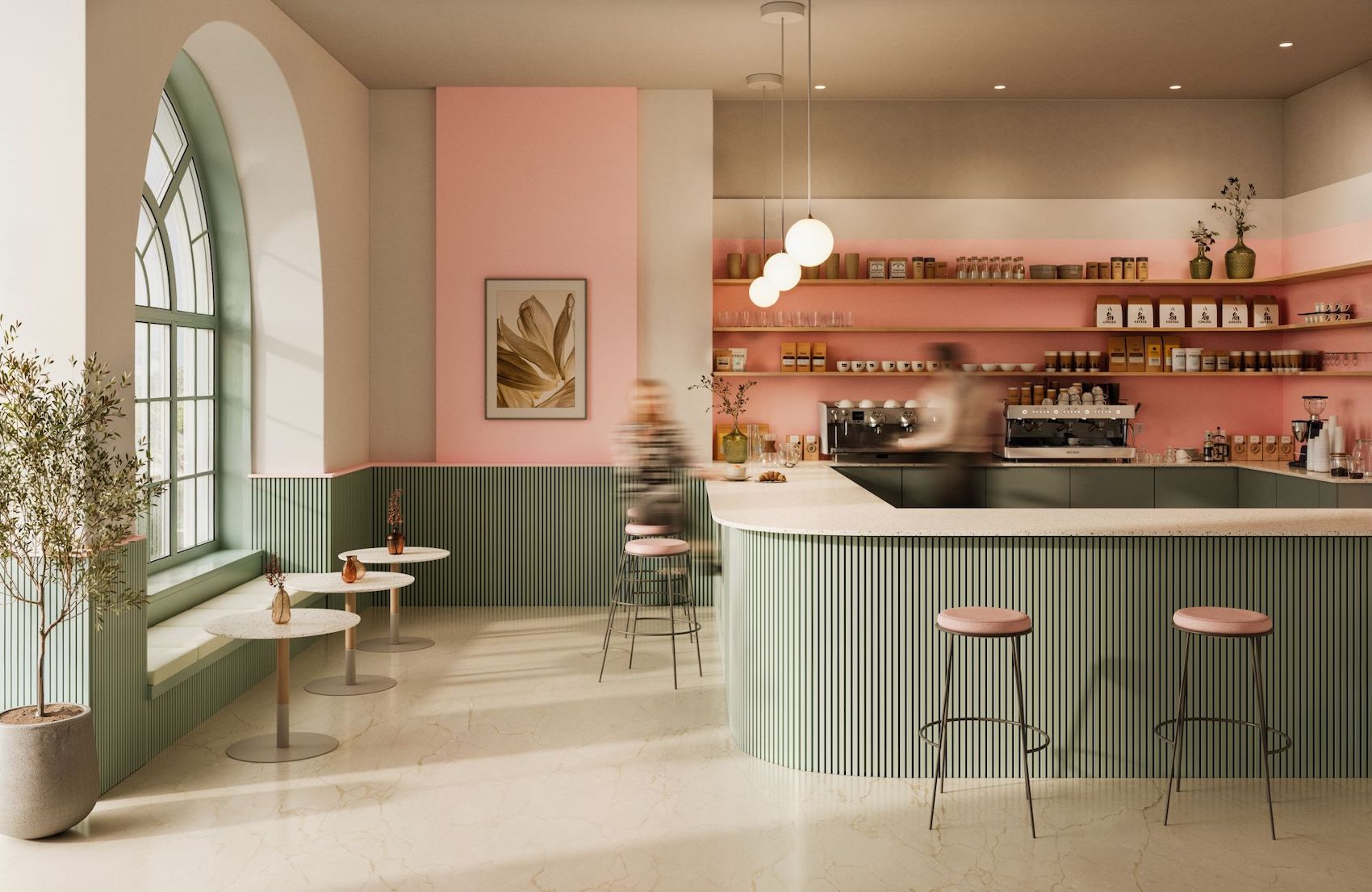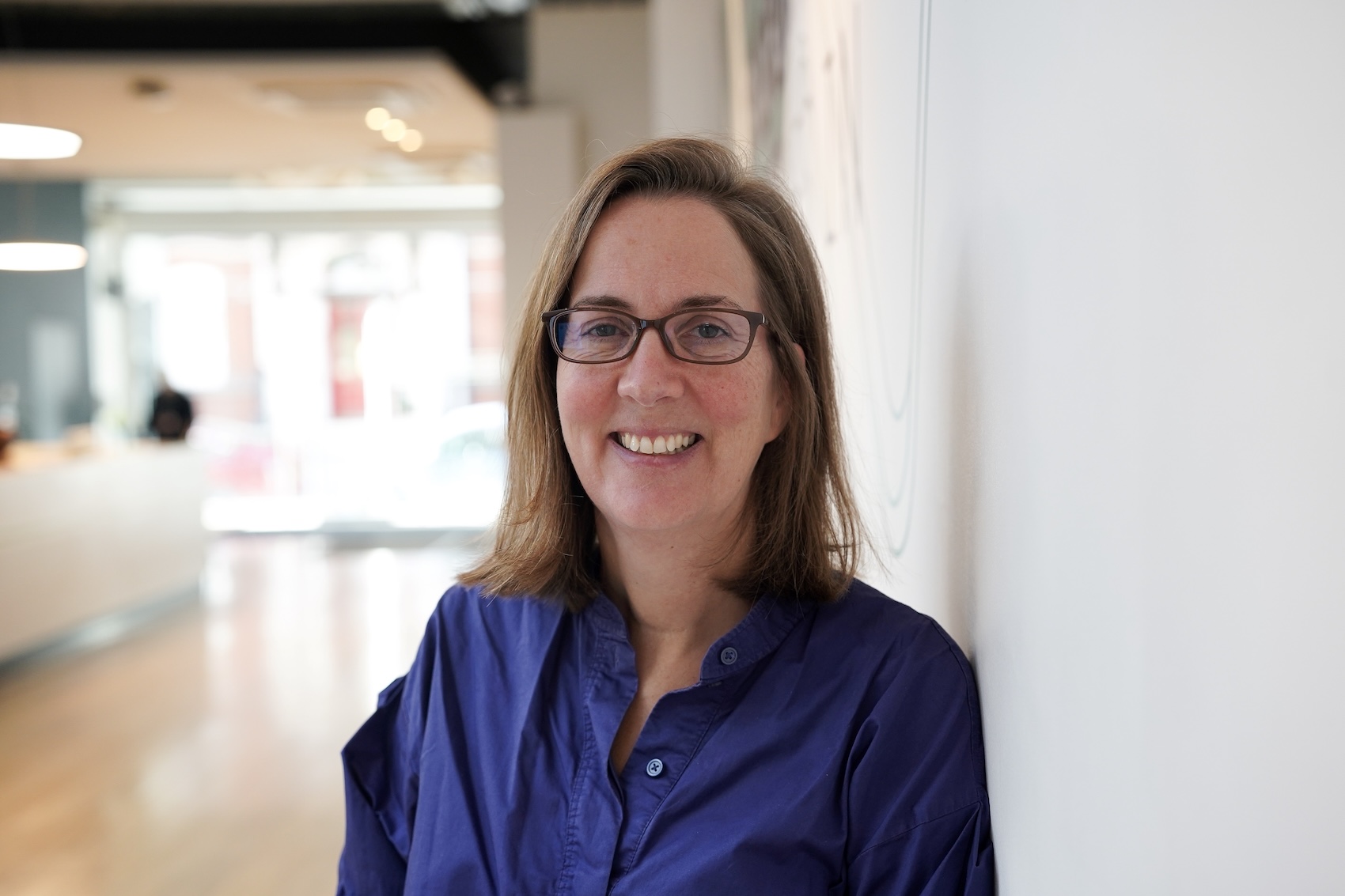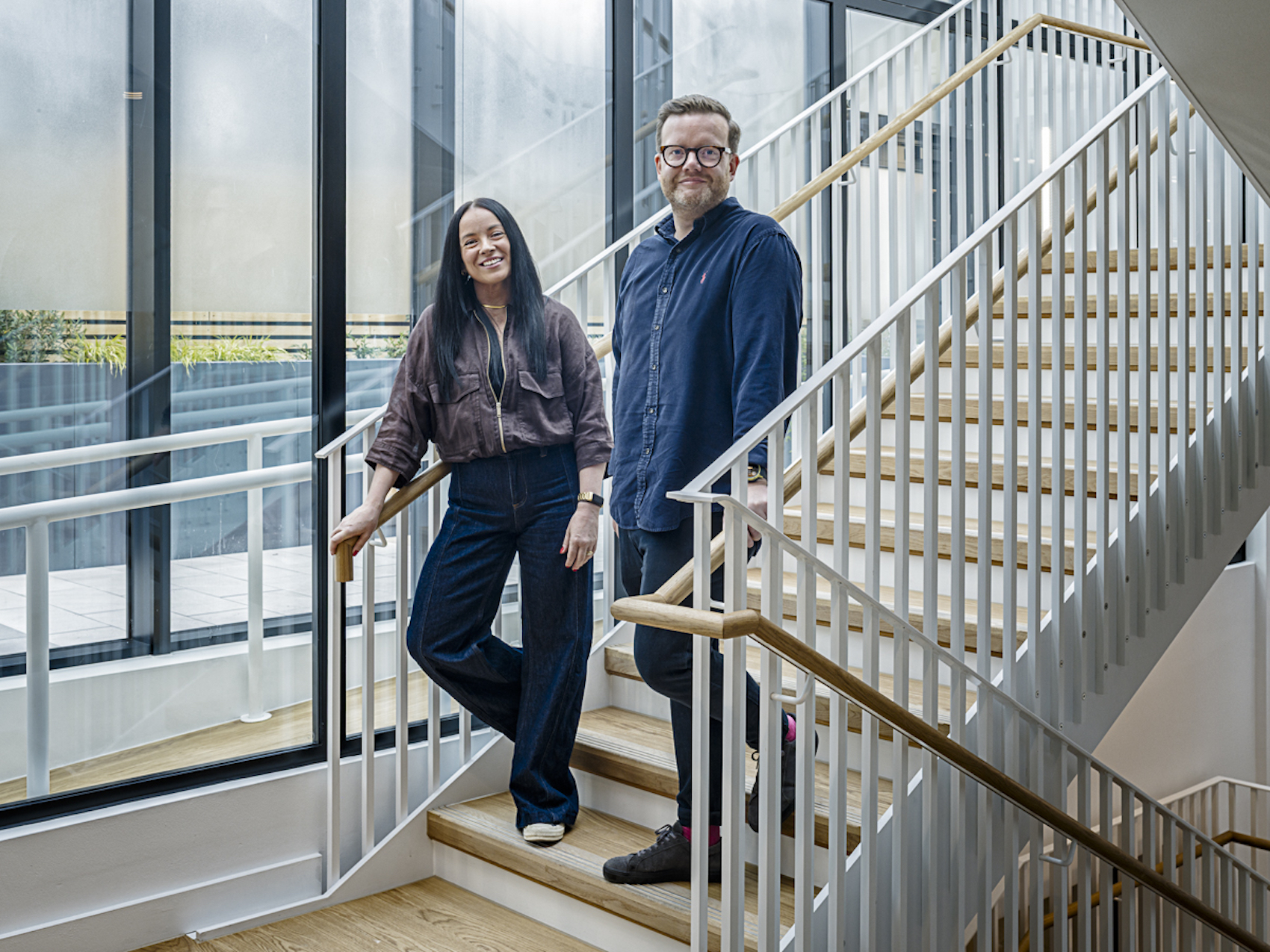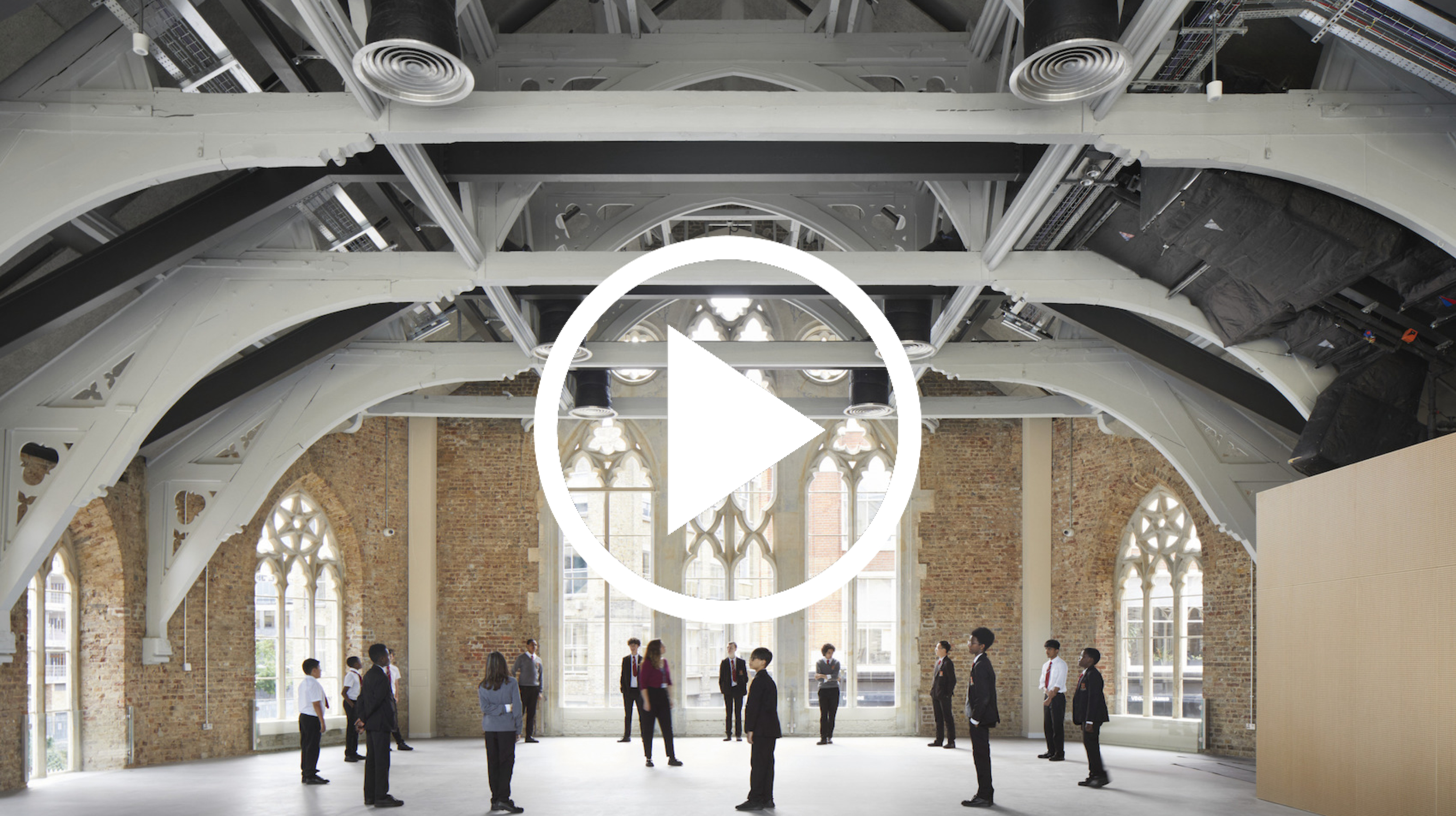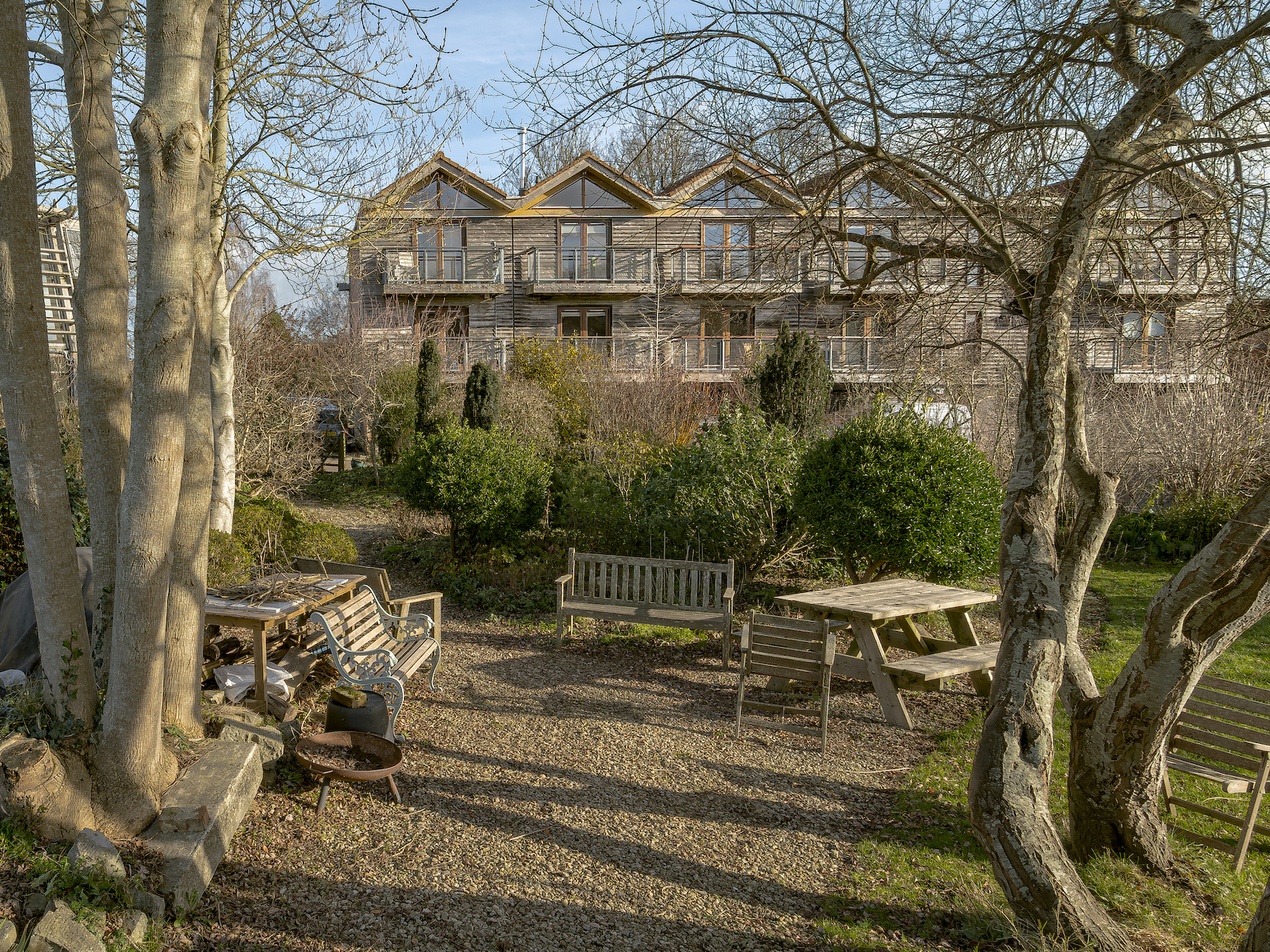Marks Barfield Architects discuss viewing buildings as material banks; drawing inspiration from biomimicry to shape the culture and structure of the practice and taking a principled position on projects at home and overseas.
Julia Barfield, founder of Marks Barfield Architects at their studio in Clapham, south west London. From left to right: Vlad Podoleanu; Ian Rudolph; Khadija Begum; Julia Barfield; Pippa Small; Guilherme Ressel; Darcy Arnold-Jones; Zubaydah Jibrilu-Bello and Ian Crockford. Thomas Henderson Schwartz – currently on paternity leave – is visible on the computer screen.
The most significant barriers we have encountered are related to the lack of circular infrastructure in the industry. A key design shift has been towards reuse of materials within and between projects; however, this has been hampered by the limited availability of physical storage, the fluctuating supply and demand for second- hand materials, and the additional time required to carry out material audits upfront.
We view buildings as material banks and connect projects through a host-donor model. This creates a mini circular economy in which material audits identify components for reuse and inform strategies for future disassembly.
As the industry continues to outpace the physical and regulatory frameworks, we find ourselves working in a constantly evolving environment, with whole-life carbon assessments and material passports yet to be standardised. In response, we have developed our own working methods and templates while contributing to wider initiatives, such as the Material Passport Working Group. We have engaged in numerous discussions with our insurers—both to mitigate risks and to educate them on circularity processes.
Nature actively shapes our practice culture. We have adopted a decentralised, collaborative structure inspired by biomimicry, where teams function interdependently – like cells in a living organism.
Our involvement with the London Eye saw our community activity broaden to incorporate the Southbank where we established our most notable charitable initiative: a commitment ensuring that 1% of ticket sales are directed to the local community in perpetuity.
We have also taken a principled position within the industry by questioning the M&S Oxford Street development. Julia Barfield spoke at the public enquiry in defence of retaining the existing building, and we went on to submit a proposal for the RIBA Re-Store competition, for which we were shortlisted.
More broadly, the practice has taken an ethical stance on international work by declining commissions or tenders in countries where governments or regimes are known to suppress free speech or engage in political oppression.
Marks Barfield Architects
SW4 0BG
Reinventing practice features participants in the Regenerative Architecture Index.


